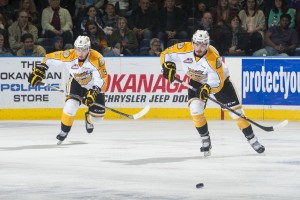For much of the franchise’s history, the Carolina Hurricanes have rarely been considered a great defensive team. Most years, they struggled to even contend as a “decent” defensive team. The focus was on the offensive side of the puck, usually with one or two star players leading the way. The defensive lineup, on the other hand, often composed of a hodgepodge of free agents no other team wanted and/or draft picks that never quite panned out as expected.
Defense Wins Championships?
What limited success the Canes have had in their history only backs this up. In the 2001-2002, Ron Francis and Rod Brindamour were the obvious leaders at the time, a one-two tandem down the middle that gave opponents fits. Goaltenders Artrus Irbe and Tom Barrasso were as solid in net as they needed to be. And while names like Sean Hill, Sandis Ozolinsh, and Marek Malik were recognizable, it’s hard to say they were the most intimidating lineup opponents could face. Yet, it was with that defensive roster that the Hurricanes surprised many by making it all the way to the Stanley Cup Finals.
They did one better in 2006. Once again, two centers were the faces of the franchise. Rod Brindamour had already established himself as a consistent threat on both sides of the ice, and Eric Staal took the league by storm after posting a 100-point season in his sophomore year. Cam Ward began his career by stopping Mario Lemieux, Zigmund Palffy, and Sidney Crosby in the shootout in his first NHL start, and finished the year by capturing the Conn Smythe. But again, the Hurricanes defensive roster at the time was surprisingly weak for a Stanley Cup Champion, led by Glen Wesley, Mike Commodore, and Frank Kaberle. It becomes even more obvious when one considers the Anaheim Ducks won the Cup the following year with Scott Niedermayer and Chris Pronger in their lineup, two #1 defensemen to Carolina’s zero.
Fading Down the Stretch
Those Final appearances and the Cup win did wonders for establishing the Hurricanes’ presence in NC, but they may have also unintentionally hurt the franchise in the long run. A belief seemed to form that, since the Canes had success without putting much focus on their defense, the defensive roster must an afterthought to a solid forward corps and goaltending. Former general manager Jim Rutherford made this philosophy quite obvious in his consistent, adamant refusal to draft defensemen in the first round of the NHL draft.
In the 17 drafts that Rutherford controlled during his time in Carolina, the Hurricanes drafted a defenseman in the first round only 5 times: Nikos Tselios (1997), David Tanabe (1999), Igor Knyazev (2001), Jack Johnson (2005) and Ryan Murphy (2011). Tselios and Knyazev played a grand total of 2 games for the Hurricanes, and while David Tanabe had a long career before having it cut short by concussions, he never lived up to his first round selection. The decision to draft Jack Johnson was Rutherford’s most notable move during his time with the franchise, notable because Johnson refused to play for the Canes, forcing Rutherford to trade him before he ever suited up for the team. The fact the organization debated between Johnson and Marc Staal only makes that decision even more painful.
With defense as an afterthought for much of Rutherford’s tenure as general manager of the Hurricanes, its no wonder the team struggled as much as it did. Carolina turned from Cup contender to bubble team, and from bubble team to basement dwellers.
New General Manager, New Philosophy
Luckily for the Hurricanes’ franchise and their fans, Ron Francis doesn’t appear to have the same misgivings about young defensemen as his predecessor did.
“We talked last year about trying to build this thing right for the long term and start from the foundation,” Francis said. “Obviously the picks are great, as long as we do our job and draft the right players and develop the players and give them the best opportunity to be NHL players.”
No doubt, the emergence of Justin Faulk as a top-pairing defenseman helps alleviate any misgivings he may have had. At 23 years old, he already has 4 NHL seasons under his belt, multiple appearances for Team USA, and an All-Star appearance. After putting up 49 points this past year, the future only looks brighter for Faulk.

There’s no guarantee that all these players will develop as expected. In fact, it’s more reasonable to expect some won’t pan out. However, the more defensive prospects Francis grabs, the better the chance that he can form a solid defensive roster in the near future. With Faulk, Fleury, Murphy, McKeown, and possibly one of Hanifin/Provorov, the Hurricanes have quickly shifted to a bleak defensive prospect pool to arguably one of the best.
Perhaps most exciting about the Canes’ future is a quote from Francis at the end of the year press conference:
“We have to do what’s right for the organization long term,” Francis said. “I don’t want to get to the playoffs for one year and then miss it for four years. When we get to the playoffs, I want to make sure we’re there each and every year going forward. That’s been our vision and our plan to develop it that way.”
After years of quick fixes and trading away the future for just one more failed shot at the playoffs, those words are music to the ears of Canes fans everywhere.